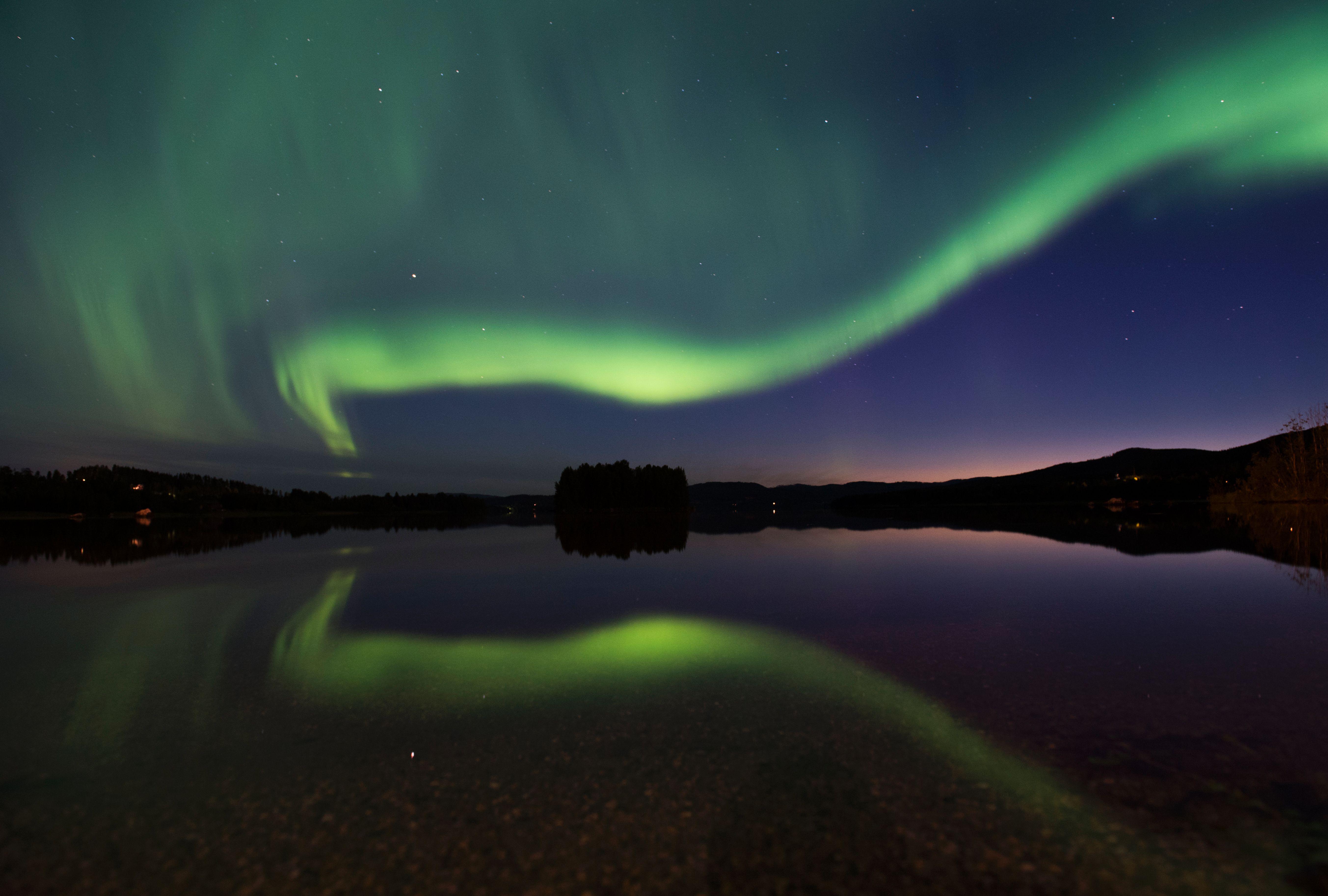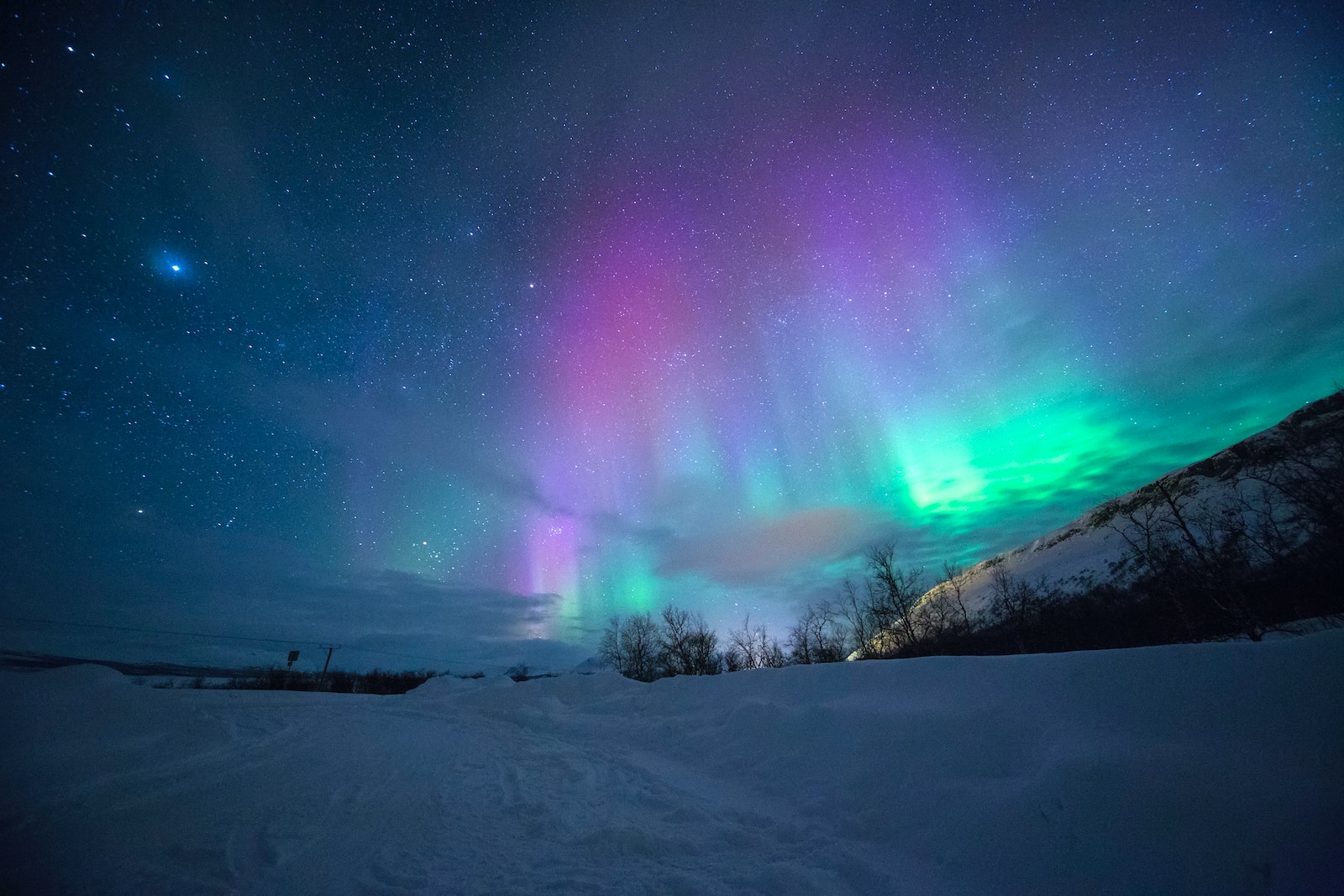The Elusive Aurora Borealis: Witnessing the Northern Lights in Seattle
Related Articles: The Elusive Aurora Borealis: Witnessing the Northern Lights in Seattle
Introduction
With great pleasure, we will explore the intriguing topic related to The Elusive Aurora Borealis: Witnessing the Northern Lights in Seattle. Let’s weave interesting information and offer fresh perspectives to the readers.
Table of Content
The Elusive Aurora Borealis: Witnessing the Northern Lights in Seattle

The northern lights, also known as the aurora borealis, are a captivating celestial phenomenon that has mesmerized humanity for centuries. While often associated with the Arctic regions, the possibility of witnessing this ethereal display from Seattle, Washington, sparks curiosity and excitement among stargazers.
Understanding the Northern Lights and Their Visibility in Seattle
The northern lights are caused by charged particles from the sun, known as the solar wind, interacting with the Earth’s magnetic field. These particles are funneled towards the poles, where they collide with atoms in the upper atmosphere, releasing energy in the form of light. This luminous display, often described as dancing curtains of green, blue, purple, and red, is most vibrant at high latitudes.
While Seattle is situated at a relatively low latitude (47.6062° N), there are instances where the northern lights can be observed. These occurrences are typically tied to strong geomagnetic storms, which can push the auroral oval further south, making it visible from lower latitudes.
Factors Affecting Northern Lights Visibility in Seattle:
- Geomagnetic Activity: The intensity of the solar wind and subsequent geomagnetic storms significantly impact the auroral oval’s extent. A strong storm can bring the auroral display to lower latitudes, making it visible from Seattle.
- Light Pollution: Seattle’s urban setting presents a significant challenge for observing faint astronomical phenomena like the northern lights. Artificial light from the city can obscure the display, making it difficult to discern.
- Weather Conditions: Clear skies are essential for witnessing the northern lights. Overcast skies, rain, or snowfall will block the display, rendering it invisible.
- Time of Year: While the northern lights can be seen year-round, they are most active during the winter months, when the nights are long and dark.
Predicting the Northern Lights in Seattle
Predicting the northern lights visibility in Seattle is a complex endeavor. Several resources can provide insights into potential auroral activity:
- Space Weather Prediction Center (SWPC): This website, run by the National Oceanic and Atmospheric Administration (NOAA), provides real-time information on solar activity and geomagnetic conditions.
- Aurora Forecast Websites: Various websites and apps specialize in forecasting auroral activity, often incorporating data from the SWPC and other sources.
- Social Media: Many aurora enthusiasts share real-time updates and observations on social media platforms, providing valuable information on the current auroral activity.
Tips for Observing the Northern Lights in Seattle:
- Head for Dark Skies: Escape the city’s light pollution by venturing away from Seattle towards darker locations. Areas with minimal artificial light, such as the Olympic Peninsula or the Cascade Mountains, offer better viewing conditions.
- Check the Weather Forecast: Ensure clear skies before heading out to observe the northern lights.
- Be Patient: Observing the northern lights often requires patience and persistence. The display can be faint and fleeting, so be prepared to spend some time looking skyward.
- Use a Red Light: Avoid using white light, as it can interfere with your night vision. A red light will help you navigate and observe the northern lights without compromising your dark adaptation.
- Dress Warmly: Nights in Seattle can be cold, even during the summer. Dress in layers to stay comfortable.
Related Searches
1. Northern Lights Tonight Seattle: This search term reflects the immediate interest in observing the northern lights tonight. Users are seeking real-time information on the current auroral activity and visibility in Seattle.
2. Where to See the Northern Lights in Seattle: This search term indicates a desire to find specific locations in or around Seattle that offer optimal viewing conditions for the northern lights.
3. Northern Lights Forecast Seattle: Users seeking this information are looking for predictions and forecasts on the likelihood of seeing the northern lights in Seattle.
4. Best Time to See the Northern Lights in Seattle: This search term highlights the interest in understanding the ideal time of year and specific nights when the northern lights are most likely visible in Seattle.
5. Northern Lights Camera Settings: This search term reflects the desire to capture the northern lights through photography. Users are seeking guidance on camera settings and techniques for optimal auroral photography.
6. Northern Lights Viewing Tips: Users interested in this topic are seeking advice and practical tips on how to improve their chances of witnessing the northern lights in Seattle.
7. Northern Lights Myths and Legends: This search term indicates an interest in the cultural and historical significance of the northern lights, exploring myths, legends, and folklore surrounding this celestial phenomenon.
8. Northern Lights Scientific Explanation: This search term reflects a desire to understand the scientific principles behind the northern lights, exploring the processes involved in their formation and visibility.
FAQs
Q: Can I see the northern lights in Seattle?
A: While Seattle is located at a relatively low latitude, it is possible to witness the northern lights during strong geomagnetic storms, which can push the auroral oval further south. However, the visibility is highly dependent on factors such as light pollution, weather conditions, and the intensity of the geomagnetic storm.
Q: When is the best time to see the northern lights in Seattle?
A: The northern lights are most active during the winter months, when the nights are long and dark. However, the best time to observe them is during periods of heightened geomagnetic activity, which can occur at any time of year.
Q: What are the best locations to see the northern lights in Seattle?
A: Areas with minimal light pollution, such as the Olympic Peninsula, the Cascade Mountains, and the Puget Sound Islands, offer better viewing conditions.
Q: How can I predict the northern lights visibility in Seattle?
A: Monitor space weather forecasts from websites like the Space Weather Prediction Center (SWPC) and check aurora forecast websites and apps for updates on potential auroral activity.
Q: What are some tips for observing the northern lights in Seattle?
A: Head for dark skies, check the weather forecast, be patient, use a red light, and dress warmly.
Conclusion
While witnessing the northern lights in Seattle is a rare and unpredictable event, it remains a captivating possibility for stargazers in the Pacific Northwest. Understanding the factors that influence auroral visibility, utilizing available resources to predict activity, and embracing patience and perseverance are essential for maximizing your chances of experiencing this breathtaking celestial spectacle. By combining scientific knowledge with a touch of serendipity, you may find yourself standing beneath the dancing curtains of the aurora borealis, a reminder of the wonders that lie beyond our earthly realm.


/cdn.vox-cdn.com/uploads/chorus_image/image/57301937/shutterstock_705562768.0.jpg)




Closure
Thus, we hope this article has provided valuable insights into The Elusive Aurora Borealis: Witnessing the Northern Lights in Seattle. We thank you for taking the time to read this article. See you in our next article!


